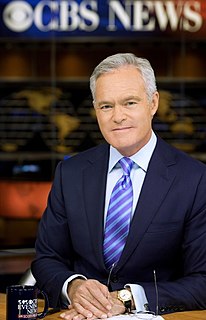A Quote by Matthew Desmond
I want my work to influence public conversation, to turn heads, and to bear witness to this problem that's raging in our cities. If journalism helps me with that, I'll draw on journalism... and I'm not going to worry too much if academics get troubled over that distinction.
Related Quotes
Anyone who does investigative journalism is not in it for the money. Investigative journalism by nature is the most work intensive kind of journalism you can take on. That's why you see less and less investigative journalism at newspapers and magazines. No matter what you're paid for it, you put in so many man-hours it's one of the least lucrative aspects of journalism you can take on.
I want to help clean up the state that is so sorry today of journalism, and I have a communications degree. I studied journalism -- who, what, where, when, and why -- of reporting. I will speak to reporters who still understand that cornerstone of our democracy, that expectation that the public has for truth to be reported. And then we get to decide our own opinion based on the facts reported to us.
There's no question that in my lifetime, the contrast between what I called private affluence and public squalor has become very much greater. What do we worry about? We worry about our schools. We worry about our public recreational facilities. We worry about our law enforcement and our public housing. All of the things that bear upon our standard of living are in the public sector.
A reckoning is coming on the state of the internet journalism, because right now, the way it's set up, there is so much room for libel to squeak through that you're going to see...they're going to rewrite the rule book on journalism very soon. They have to, because the bloggers are getting away with so much rumor-mongering about public officials and even private figures because they don't have editors and they don't have fact checkers and they don't have lawyers. There is going to be a price to pay somewhere down the line.
I've had a lot of fun, and when I talk to kids in journalism schools, I say, look, I know what the journalism teachers tell you that this is a great way to perform public service and all that, but I say the main reason, if you decide what you want to do is be a reporter, the main reason you want to do it is because it's just so much fun.
I got in journalism for any number of reasons, not least because it's so much fun. Journalism should be in the business of putting pressure on power, finding out the truth, of shining a light on injustice, of, when appropriate, being amusing and entertaining - it's a complicated and varied beast, journalism.
The problem with listening, of course, is that we don't. There's too much noise going on in our heads, so we never hear anything. The inner conversation simply never stops. It can be our voice or whatever voices we want to supply, but it's a constant racket. In the same way we don't see, and in the same way we don't feel, we don't touch, we don't taste.
I'm always very careful to make the distinction between music criticism and music journalism. A lot of people don't. But criticism doesn't require reporting. You can write criticism at home in your underwear. On the other hand, journalism takes legwork - you have to get out there and see things and talk to people.
Matt Drudge's role in the Monica Lewinski scandal] strikes me as a new and graphic power of the Internet to influence mainstream journalism. And I suspect that over the next couple of years that impact will grow to the point where it will damage journalism's ability to do its job professionally, to check out information before publication, to be mindful of the necessity to publish and broadcast reliable, substantiated information.
A big part of my book deals with the caliber of journalism. Our journalism in general is deplorable, and on elections in particular it's very ineffectual. There are a lot of problems, a lot of them having to do with to problems within the professional code of journalism, which defines its role as the regurgitation of what people in power say. Another big problem is that we allow people with money to basically buy what's talked about in campaigns through running TV ads.





































